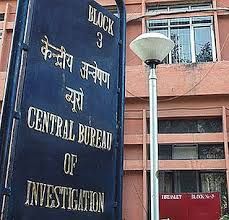 The Supreme Court on Tuesday removed a hurdle in the way of investigation and prosecution of corrupt officials, with a Constitution Bench ruling no prior government sanction was necessary for this.
The Supreme Court on Tuesday removed a hurdle in the way of investigation and prosecution of corrupt officials, with a Constitution Bench ruling no prior government sanction was necessary for this.
So far, the Central Bureau of Investigation was handicapped in its probe into several scams because of Section 6A of the Delhi Special Police Establishment Act, which required prior approval from higher authorities to question erring officials of the rank of joint secretary and above.
Striking down this section of the Act, the Court held that the rule was violative of the equality guaranteed to every citizen in Article 14 of the Constitution.
Elaborating on the discriminatory provision, the judges pointed out that while joint secretary and officers above that level in the central government were granted protection, the same level of officers working in states were not given such benefits.
“Corrupt persons, whatever be their status, should be treated equally. They are birds of the same feather,” the Court said.
The Court also observed corruption was an enemy of the nation and CBI had a role in stemming it.
The sanction rule prevented the investigative agency even from conducting a preliminary inquiry against civil servants.
Crime-doers should not be distinguished on the basis of their status in the civil service, it said.
The five-judge Bench, headed by Chief Justice R M Lodha, wrote the unanimous judgment, which said “this provision on the face of it is not valid.
"It grants absolute protection to corrupt officers from prosecution. They don’t need a shield like this”.
Detention order valid, Roy to stay in jail for now
The Supreme Court on Tuesday dismissed Sahara group chief Subrata Roy’s petition challenging his detention in Delhi’s Tihar jail for non-refund of the Rs 20,000 crore (Rs 200 billion) his group firms owed investors.
A long judicial custody looms over Roy, as he has not produced a convincing proposal to raise the Rs 10,000 crore (Rs 100 billion) demanded by the Court for his release.
He might still bring a proposal before Friday, when the court closes for a seven-week summer vacation.
The order, given by judges K S Radhakrishnan and J S Khehar, criticised Roy’s behaviour in adopting ways to frustrate a two-year-old order on refund to investors.
“He disobeyed not only the apex court orders but those of the Bombay High Court and the Securities Appellate Tribunal.
"Every order of Sebi was assailed before the next higher authority, and then before this court,” the order said.
Constitutional validity of Right to Education upheld
The Supreme Court on Tuesday upheld the Constitutional validity of the Right to Education Act provision mandating that 25 per cent of seats in all schools be reserved for the economically disadvantaged children.
A five-judge Constitution Bench headed by Chief Justice R M Lodha, hearing a large number of private schools, clarified the Act would not apply to minority schools, whether aided or unaided.
The Bench rejected private schools’ contention that the law violated their right to freedom.
It said Articles 15(5) and 21-A of the Constitution, in so far as they related to unaided educational institutions to provide compulsory education to children in the six-14-year age group, were Constitutional.
The judgment said the amendment was consistent with the socialistic goals set in the Preamble and the directive principles of the Constitution.











